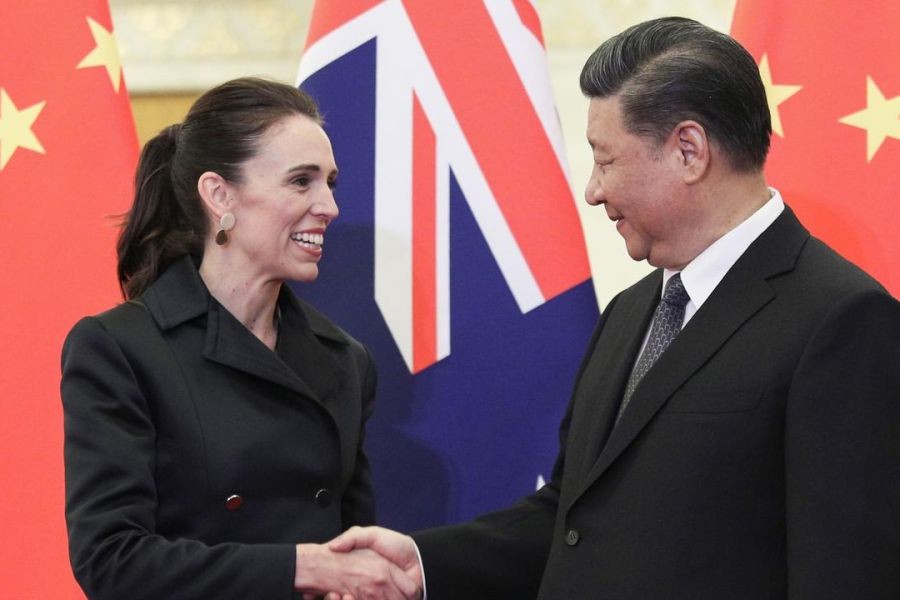New Zealand’s foreign policy, characterized by a commitment to multilateralism and a rules-based international order, stands as a beacon of stability and pragmatism in an increasingly polarized global environment. While larger powers such as the United States, China, and the European Union often engage in foreign policy through the lens of geopolitical dominance and economic leverage, New Zealand emphasizes diplomacy, trade partnerships, and international cooperation. But how does this small Pacific nation’s approach compare to the strategies of these global powers, and what lessons can New Zealand impart to others in these tumultuous times?
The Evolution of New Zealand's Foreign Policy
Post-World War II, New Zealand shifted from being a staunch ally of the United Kingdom to establishing its identity as an independent player on the world stage. This transition was marked by its nuclear-free policy in the 1980s, which positioned New Zealand as a leader in disarmament and non-proliferation. The Ministry of Foreign Affairs and Trade (MFAT) has since steered New Zealand’s foreign policy towards fostering trade relationships and advocating for climate change initiatives.
Influence of Economic Policies
New Zealand’s economy relies heavily on exports, particularly in the agriculture and dairy sectors. According to Stats NZ, exports make up nearly 30% of the country's GDP, with key markets in Asia, the Americas, and Europe. Free trade agreements (FTAs) have been a cornerstone of its foreign policy, exemplified by the Comprehensive and Progressive Agreement for Trans-Pacific Partnership (CPTPP). These agreements not only enhance economic growth but also reinforce diplomatic ties.
Comparative Analysis: New Zealand vs. Global Powers
While New Zealand's foreign policy is largely cooperative and trade-focused, global powers often prioritize strategic dominance. The United States, for instance, employs a blend of military strength and economic sanctions to influence global affairs. China, on the other hand, utilizes its Belt and Road Initiative to extend its influence through infrastructure investments in developing countries.
Case Study: New Zealand’s Role in the Pacific
New Zealand has consistently played a pivotal role in the Pacific region through initiatives like the Pacific Reset, which prioritizes regional stability and development. The country’s commitment to climate change action and sustainable development goals underscores its leadership in promoting a resilient and prosperous Pacific community.
Pros and Cons of New Zealand’s Approach
Pros:
- Diplomatic Credibility: New Zealand is often seen as a neutral and credible mediator in international disputes.
- Trade Opportunities: FTAs have opened up new markets, increasing national income and employment opportunities.
- Environmental Leadership: The country’s proactive stance on climate change enhances its global standing and influence.
Cons:
- Limited Strategic Influence: New Zealand’s small size limits its ability to exert influence in global power dynamics.
- Economic Vulnerability: Heavy reliance on exports makes the economy susceptible to global market fluctuations.
- Resource Constraints: Limited military capabilities can restrict New Zealand’s ability to respond to regional security threats.
Debating the New Zealand Model
While New Zealand’s foreign policy is often praised for its emphasis on diplomacy and sustainability, critics argue that it may lack the strategic depth necessary to protect its national interests in an increasingly competitive global landscape. However, the country’s approach demonstrates that soft power and strategic partnerships can be effective tools in international relations.
Expert Insight: The Future of New Zealand’s Foreign Policy
According to a recent report by the New Zealand Institute of International Affairs, the future of New Zealand’s foreign policy will likely involve a greater focus on technology and innovation. As global powers invest heavily in technological advancements, New Zealand could leverage its burgeoning tech sector to enhance its diplomatic and economic influence.
Common Myths and Misconceptions
- Myth: "New Zealand lacks influence in international affairs." Reality: New Zealand’s leadership in climate change and human rights advocacy has earned it significant respect and influence in international forums.
- Myth: "New Zealand's foreign policy is solely trade-focused." Reality: While trade is a priority, New Zealand also invests in regional development and security, particularly in the Pacific.
Key Takeaways and Strategic Recommendations
- New Zealand’s focus on multilateralism and trade partnerships provides a robust model for small nations seeking to navigate global complexities.
- Investing in technology and innovation can further bolster New Zealand’s influence and economic resilience.
- Continued advocacy for climate change and sustainable development will enhance New Zealand’s diplomatic standing.
Future Trends and Predictions
As geopolitical tensions rise, New Zealand is poised to play a critical role in fostering dialogue and cooperation. By 2030, New Zealand may emerge as a leader in digital diplomacy, utilizing its tech sector to facilitate international negotiations and collaborations.
Conclusion
New Zealand’s foreign policy, though distinct from that of larger powers, offers valuable lessons in diplomacy, sustainability, and innovation. As the world grapples with complex challenges, New Zealand’s approach underscores the power of strategic partnerships and ethical leadership on the global stage. How might your business or organization adopt these principles to thrive in an interconnected world?
People Also Ask
- How does New Zealand’s foreign policy impact its economy? New Zealand’s foreign policy, focused on trade agreements and sustainable development, significantly boosts exports and GDP, per Stats NZ.
- What are the biggest misconceptions about New Zealand’s foreign policy? A common myth is that New Zealand is less influential globally, but its climate leadership and trade initiatives prove otherwise.
Related Search Queries
- New Zealand foreign policy strategy
- trade agreements New Zealand
- New Zealand diplomatic relations
- New Zealand climate change initiatives
- New Zealand economic growth
- Global powers foreign policy comparison
- Pacific region development
- Technology in New Zealand diplomacy































